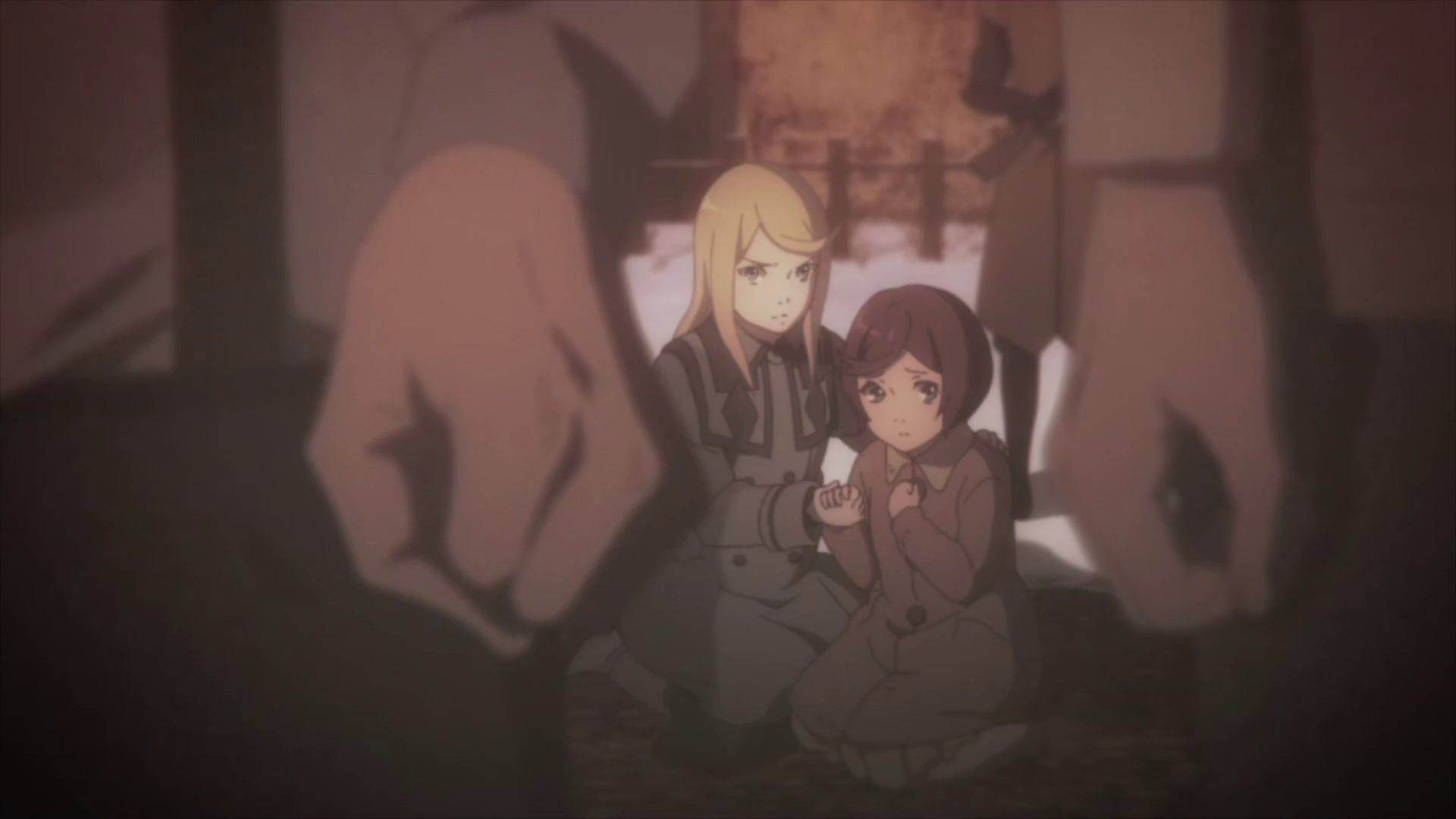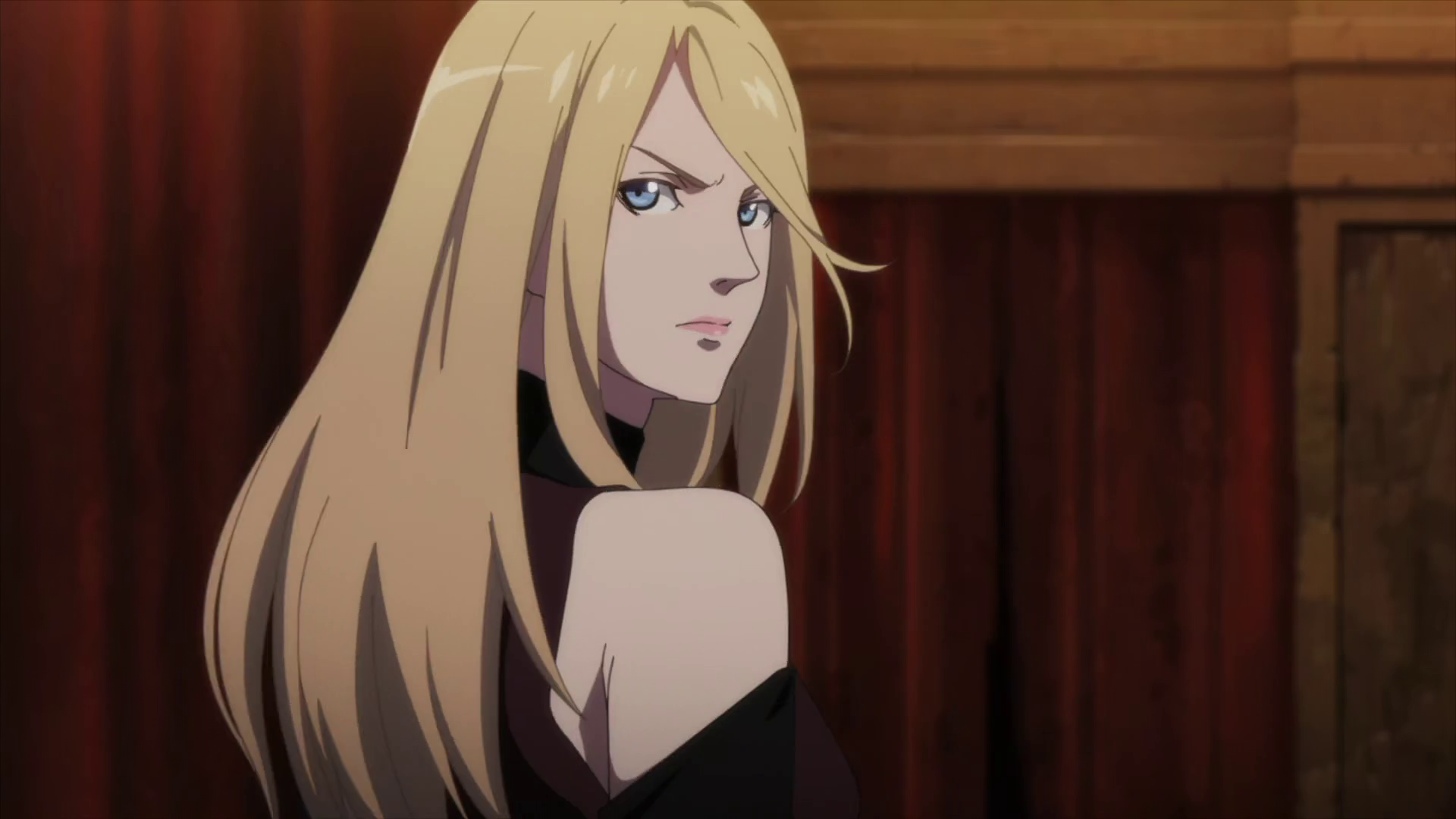 Writing isn’t easy and writing fiction is especially hard. Writing fiction, especially within genres like fantasy and Sci-Fi, requires care. Immersing an audience in a world and asking them to buy into these characters, their arcs, and the creative scope of the story is notoriously difficult. Audiences stop watching within a couple minutes and agents stop reading after a bad first page. Overlooked details and inconsistencies can completely block anyone from enjoying any story. I feel like most people can come up with at least a handful of shows that do masterful worldbuilding and draw just about anyone into a setting without issue. This isn’t about shows like that. This is about Fairy Gone and its failure to capitalize on its story beats in the first episode.
Writing isn’t easy and writing fiction is especially hard. Writing fiction, especially within genres like fantasy and Sci-Fi, requires care. Immersing an audience in a world and asking them to buy into these characters, their arcs, and the creative scope of the story is notoriously difficult. Audiences stop watching within a couple minutes and agents stop reading after a bad first page. Overlooked details and inconsistencies can completely block anyone from enjoying any story. I feel like most people can come up with at least a handful of shows that do masterful worldbuilding and draw just about anyone into a setting without issue. This isn’t about shows like that. This is about Fairy Gone and its failure to capitalize on its story beats in the first episode.
A first episode is saddled with many responsibilities but most importantly it’s establishing the facts one immediately needs to know:Who are these characters? What do they want? Why should I care about their struggles?
Fairy Gone’s first episode opens immediately on narration telling us that the fictitious country is warring for the sake of unification and this is already a problem. The was as background is never a problem in fantasy-inspired stories. Its a fairly standard trope. The problem is this narration is the first thing that’s grounding me into this war and I’m just thrown into a war I have very little context for. I don’t know who is telling me about the war, nor do I know why I’m focused on this person’s particular perspective. Narration is completely fine as a storytelling technique but there’s a certain strategy to both showing and telling. It would be more effective to be told about the war after we are given a reason to care that it’s happening.
Code Geass had a compelling introduction because we were given a reason to dissent against the overarching war before the story has even begun properly. By the time the war quickly takes the forefront, we already know our main character’s goal and how it stands in opposition to the world’s status quo.
During Fairy Gone’s opening narration, we are shown that a character named Lay Dawn has orchestrated this razing of Marlya’s village. The sparse dialogue in this scene implies that it is a shock that Lay Dawn is doing this. This screams of betrayal and political subterfuge but I am only left to guess. I noticed that the flags of the men attack Suna are apparently the flags of the Kal-O people; however, I gleaned that information after watching the episode several times. The story does not call attention to this detail. The groundwork is laid here for a very interesting inciting indecent to the story but the elements are not given enough time to breathe.
The next scene we see is of the second main character, Free, being informed that the King of Ledrad has surrendered. Thus, leaving all magical Super Soldiers, known as Fairy Soldiers without purpose since they were primarily a wartime investment. This speaks to something that would signal a large shift in Free’s life but, again, the real gravity of this is not allowed to sink in. I am dropped in at the moment of discovery and change before I understood what the norm was. The impact is lessened.

One good aspect of this opening is that the narration is split up between three different characters. This split could easily sell the idea that this war has significantly affected many others. However, that’s the biggest compliment I can give here. The fact that only two characters are named in this scene, and one of them is the only character without speaking lines isn’t great. Still, I can buy into the idea that this character was named to keep him in the back of my mind when they reintroduce him later on. This type of foreshadowing is good but is better when the character is given a unique trait or establishing moment to cement them in the audience’s mind.
The information that has been given about the cast is so minimal that my expectations for what this show might be about are already all over the place. As mentioned earlier, the first episode of Code Geass opens with five minutes that encapsulates about everything the show is about: Lelouch and Suzaku’s friendship, war, geopolitical stakes, Lelouch’s burning hatred for Brittania, and supernatural secrets hidden just out of view.
I could go on longer about how the exposition in this episode and the framing of how we’re learning about each character is clunky at best and horrible at worst. Believe me when I say this video could be an hour long if I took this show scene by scene but I won’t do that. Instead, I’ll hit highlights.
Marlya and Free’s meeting is underwhelming. The mafia that Marlya works for is hosting an action but this is not revealed immediately. She happens upon Free and he is clearly not supposed to be there. Marlya does not pick up on this and seems to be particularly aloof herself. The place is promptly robbed by Marlya’s childhood friend Veronica and we then learn that searching for Veronica was Marlya’s goal of joining the mafia the whole time. That statement is the first time the audience is told the mafia exists. Free sees Veronica’s Fairy and remarks that he’s never seen anything like it but that statement comes off as meaningless fluff. Free was a soldier and we could believe here that he does have experience with Fairies but the story has yet to really suggest his experience. Up to this point, we’ve only seen three Fairies in the OP so this ultimately feels like premature gawking. We see Fairies and are told this one is supposed to be unique but, without context, this is just the first Fairy I’ve seen properly.
 This is followed by Veronica giving the obligatory “the old me is dead” speech to Marlya. This falls flat because we have no idea who either the old or new Veronica are. We have been shown this character just twice at two completely different points in time. With minimal context, the obvious conclusion is that this character has changed but we have no idea what that truly means. It just comes off as fluff.
This is followed by Veronica giving the obligatory “the old me is dead” speech to Marlya. This falls flat because we have no idea who either the old or new Veronica are. We have been shown this character just twice at two completely different points in time. With minimal context, the obvious conclusion is that this character has changed but we have no idea what that truly means. It just comes off as fluff.
Storytelling is a careful mix of structure, context, themes, and so on. If any of the elements are off, the execution will suffer. Like I said before, Fantasy is hard. Coherently executing various ideas that sound good on paper is hard. I found this to be interesting in Fairy Gone’s case because Studio PA Works has made their bread and butter doing shows that are very much not SFF like this, save for Sirius the Jaeger and Angel Beats. Despite Fairy Gone being a bit of a mess, I have to applaud Studio PA Works for trying to do something different. It’s always cooler when studios take risks with their original projects for something a little outside the box.

Leave a comment